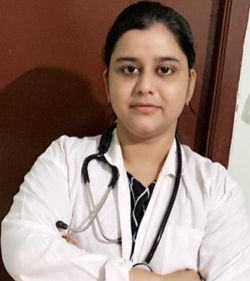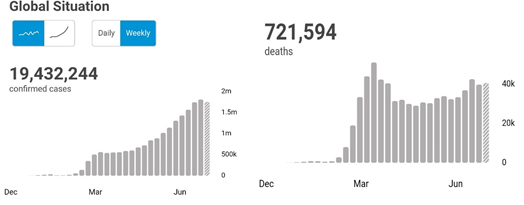- Details
- Denis Giles
- Hits: 733

*Dr. Sandhya
According to the World Health Organization (WHO), approximately 65-80% of the world’s population living in developing countries depends essentially on plants for primary health care. Since ancient times medicinal plants have been used as a source to cure numerous human diseases. In the present days, one fourth of the world population depends on traditional medicines. As per the recent data the global traditional market is increasing at the rate of 7-15 percent per year. Herbal medicinal preparations are normally very popular in developing countries.
- Details
- Denis Giles
- Hits: 728

Nobody in their wildest dreams a few hundred years ago believed the earth was round, “Round!” they would have laughed at you scornfully, “Am I laying flat stones for my castle flooring or curved ones? Ha, ha, ha!”
- Details
- Denis Giles
- Hits: 1242

Dr. Anjani Devi and Venkatesh Kumar Singh
The world is struggling to recover from the unexpected shock of Covid-19 which spread all over the world is threatening the human survival. The outspread of coronavirus forced us to rethink about the notion about the notion of security. The concept of security is not a new term in the political context. In the discipline of international relations, this terminology signifies a ‘national security’ which particularly deals with the state’s security from the external threats which is a narrow definition of national security. However, such notion has changed with the end of Cold War under which the national security has become non-military in nature and state no longer remained as referent object. Because the threat to the nation or state were no longer identified with the military or external aggression. In contrast, the issues such as climate change, drug trafficking, human trafficking, natural disaster, cyber-security and transnational crime, resource scarcity and infectious disease, pandemic, social security have emerged as the forefront security threat. Therefore, human security has been included as an integral part of the security agenda in the post-Cold War era and added as a non-traditional security issues.
Read more: Revisiting the Concept of Human Security Amid Pandemic COVID-19
- Details
- Denis Giles
- Hits: 678

Now it’s not every day the Man in the Moon starts peering down at Earth, right? But today, his missus, realized that hubby was spending a little too much time staring down below, “Another Miss World pageant going on husband?” she asked, “That’s one time you are glued to your Earth watching!”
- Details
- Denis Giles
- Hits: 916

Dr. Sandhya
Senior Resident, Prasuti Tantra & Stri Roga, Institute of medical sciences, Banaras Hindu Universuty
Anemia is one of the most commonly uncounted medical disorders during pregnancy. Most vulnerable groups are adolescent, adult female and pregnancy. Anemia is defined as a decrease in the oxygen carrying capacity of the blood due to decrease in amount of RBCs or hemoglobin or both. Patients with anemia usually have symptoms like weakness, easy fatigability, headache, dizziness and in cases of severe anemia there may be palpitations, breathlessness, generalized swelling. Anemia during pregnancy is especially a concern because it is associated with low birth weight, premature birth, increased maternal morbidity and mortality. Anemia during pregnancy can be a mild condition and easily treated but it can become dangerous and challenging, to both the mother and the baby, if it goes untreated.